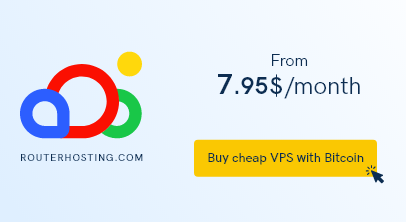Virtual Private Server, or VPS, is an extremely popular web hosting type—and for good reason. With VPS, you get a sizable portion of a dedicated server that runs several hosting instances at the same time. Simply put, it gives you a lot of the benefits of having a dedicated server, without having to pay the costs associated with it.

But what benefits are we talking about here, and how does VPS compare to cheap, shared hosting? Let’s list and compare all three web hosting types.
Shared hosting is by far the cheapest of the lot. When you use shared hosting, you share the server with a large number of other websites. This hosting method won’t give you much in the way of performance, security, or flexibility.
Virtual Private Hosting (VPS) is, as we’ve already mentioned, a hybrid method. Like with shared hosting, you will be renting a part of an existing server. VPS, however, guarantees that a predetermined portion of the server’s resources will be used entirely for your site. Offshore VPS plans are flexible in their price range and tend to outperform shared hosting when it comes to performance and security.
With a dedicated server, all of the server’s computing power will be at your disposal. Offshore dedicated servers tend to cost a fair bit, but nothing else will be able to match their performance, security, and flexibility.
So, while a dedicated server is certainly the most powerful option, it tends to be too expensive for most. That is where VPS plans come in. Here are 5 reasons for you to consider them.
1. High Level of Performance
As we’ve mentioned above, a VPS plan will provide you with a much larger allotment of resources than a shared plan would. You will have access to dedicated RAM, greater bandwidth, and power capacity. Your website will be much more responsive and it will load notably faster.
Thus, your users can enjoy your content without having to worry about annoying drops in speed. As a result, they will be much more satisfied with the experience, and user satisfaction leads to greater loyalty and financial gain in the long run. Furthermore, a faster site tends to rank higher in search engines. Google will appreciate your choice of web hosting just as much as your visitors will.
Additionally, you shouldn’t ignore yet another perk of VPS plans: their capacity to handle higher traffic levels right from the start. Not only will your website accommodate more visitors, but it will also be more resistant to potential DDOS attacks.
2. Total Control of the Virtual Server
One of the most common problems with shared hosting is a lack of access to the root environment. Without root access, you will be limited to the software packages that your provider supports. That means an almost complete lack of flexibility. With a shared server, you either use what is offered or you use nothing at all.
A VPS, in turn, will always grant you root access. You are able to install the software you want without issue and update it when you see fit. You can also run batch files, make backups, and even customize your control panel without issue. For as long as you follow the server’s terms of service, you will be able to run any app on your website.
3. Scalability
The majority of shared hosting plans tend to be limited when it comes to scalability. Hitting the ceiling is quite easy with them, and you will probably have to migrate at some point. With a VPS, you can scale up without the process interfering with your site’s functioning in any way. As the owner of a new website, you can start with a more modest hosting plan and gradually move up as your brand grows.
Of course, if you overestimate your needs, nothing will lock you into your choice. You can scale up or down just as easily. Simply authorize the cost of an upgrade (more RAM or CPU power) or request a downgrade. Your hosting company will complete the process within very little time.
4. Great Value for Money
VPS hosting will give you immense resources, almost comparable to what you would enjoy from a dedicated server. Considering the costs of a dedicated server, you should realize just how great of a bang for your buck you will be getting with a VPS. The added customization and the option to upgrade later on is the icing on the cake. Shared hosting barely even looks worthwhile in comparison, unless you specifically want a super cheap site.
All things considered, VPS is by far the most cost-effective hosting option, going for as little as €5.99 or €15.99 per month. It hits the sweet spot between economy and premium while giving you the ability to gravitate more toward the former or the latter.
5. Improved Overall Security
VPS is notably more secure than shared hosting. As the owner of a growing business or an aspiring blog owner, you won’t have to worry too much about someone hacking your website or losing your data; as long as you don’t leave your part of the virtual server vulnerable, you’re safe. The main reason behind that security is the fact that each user’s stored data is kept separate from other users’ data. Even if one user gets a malware infection, that infection won’t easily spread to other users.
Perhaps more importantly, hackers will not be able to use a backdoor from one client’s data to another’s. In contrast, if you use shared hosting and one of the other users gets hacked, your website and data will effectively be on a silver platter for the hacker.
Conclusion
A good VPS plan is something that no online entrepreneur or aspiring blogger should ignore. It combines high performance, control, scalability, overall value, and security. VPS services are also ideal for video streaming websites. If you plan on doing any e-business or cultivating a lasting online presence, you owe it to yourself to at the very least consider the option.
It would be a great decision for the future of your website and could be the best investment that you ever make.




